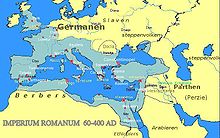| Millennium: | 1st millennium |
|---|---|
| Centuries: | |
| Decades: | |
| Years: |
| AD 60 by topic |
|---|
| Leaders |
| Categories |
| Gregorian calendar | AD 60 LX |
| Ab urbe condita | 813 |
| Assyrian calendar | 4810 |
| Balinese saka calendar | N/A |
| Bengali calendar | −533 |
| Berber calendar | 1010 |
| Buddhist calendar | 604 |
| Burmese calendar | −578 |
| Byzantine calendar | 5568–5569 |
| Chinese calendar | 己未年 (Earth Goat) 2757 or 2550 — to — 庚申年 (Metal Monkey) 2758 or 2551 |
| Coptic calendar | −224 – −223 |
| Discordian calendar | 1226 |
| Ethiopian calendar | 52–53 |
| Hebrew calendar | 3820–3821 |
| Hindu calendars | |
| - Vikram Samvat | 116–117 |
| - Shaka Samvat | N/A |
| - Kali Yuga | 3160–3161 |
| Holocene calendar | 10060 |
| Iranian calendar | 562 BP – 561 BP |
| Islamic calendar | 579 BH – 578 BH |
| Javanese calendar | N/A |
| Julian calendar | AD 60 LX |
| Korean calendar | 2393 |
| Minguo calendar | 1852 before ROC 民前1852年 |
| Nanakshahi calendar | −1408 |
| Seleucid era | 371/372 AG |
| Thai solar calendar | 602–603 |
| Tibetan calendar | 阴土羊年 (female Earth-Goat) 186 or −195 or −967 — to — 阳金猴年 (male Iron-Monkey) 187 or −194 or −966 |

AD 60 (LX) was a leap year starting on Tuesday (link will display the full calendar) of the Julian calendar. At the time, it was known as the Year of the Consulship of Nero and Lentulus (or, less frequently, year 813 Ab urbe condita). The denomination AD 60 for this year has been used since the early medieval period, when the Anno Domini calendar era became the prevalent method in Europe for naming years.
The year 60 is the first identifiable year for which a date is cited complete with day of the week, i.e. 6 February 60, identified as a "Sunday" (as viii idus Februarius dies solis "eighth day before the ides of February, day of the Sun") in a Pompeiian graffito. According to the currently-used Julian calendar, 6 February 60 was a Wednesday (dies Mercurii, "day of Mercury"). This is explained by the existence of two conventions of naming days of the weeks based on the planetary hours system, 6 February was a "Sunday" based on the sunset naming convention, and a "Wednesday" based on the sunrise naming convention.[1]
- ^ Nerone Caesare Augusto Cosso Lentuol Cossil fil. Cos. VIII idus Febr(u)arius dies solis, luna XIIIIX nun(dinae) Cumis, V (idus Februarias) nun(dinae) Pompeis. Robert Hannah, "Time in Written Spaces", in: Peter Keegan, Gareth Sears, Ray Laurence (eds.), Written Space in the Latin West, 200 BC to AD 300, A&C Black, 2013, p. 89.